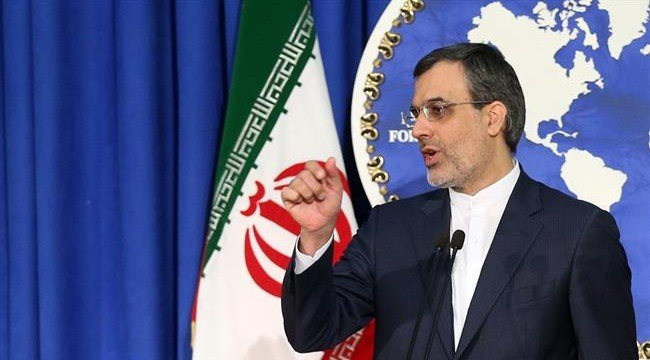Hajj still unclear for Iranians: Foreign Ministry

TEHRAN - Iranians won’t be able to make the hajj pilgrimage this year as Saudi Arabia continues to sabotage the ritual, the Foreign Ministry spokesman announced on Monday.
Making the remark at his weekly press briefing, Hossein Jaberi-Ansari said the Supreme Council on Hajj held a meeting on Sunday to discuss the latest relevant developments concerning the hajj ritual, hoping that Saudi Arabia change policy and fulfill its commitments as the host of the holy ceremony.
Iran and Saudi Arabia has been at loggerheads over a number of issues, including the Hajj stampede, inter alia, in September 2015 in which more than four hundred Iranians lost their lives.
Iran won’t hold missile talks with U.S.
On U.S. Secretary of State John Kerry’s call for missile negotiations with Tehran, the spokesman said Iran’s position on missile talks is “very clear” and “consistent”.
“We won’t accept it (talks on missile program).”
Kerry had said the U.S. and its allies were "prepared to work on a new arrangement to find a peaceful solution" to the dispute over recent Iranian missile tests.
Jaberi-Ansari added, “Iran’s missile system is for country’s security and is not up for discussion or negotiations.”
Iran has been insisting that its missile program is solely for defensive purposes.
“Iran has always been adopting a defense policy,” even in cases when the country was attacked by foreign countries, Jaberi-Ansari said.
He went on to say that even during the Iraqi invasion of Iran in the 1980s the Islamic Republic remained committed to its defense policy.
No official visit to Iran by Muqtada al-Sadr
He also dismissed news that Iraqi cleric Muqtada al-Sadr had paid a visit to Iran, saying the Iraqi Shia cleric has relatives and acquaintances in some cities in Iran and he may be traveling to Iran at times.
U.S. returns Iranian antiques
The official also said some Persian antiques, which had been confiscated by the U.S. in the past, were released to the Iranian Foreign Ministry on Sunday and in a special ceremony, the pieces were handed over to the head of the National Museum of Iran.
He added Iran continues to follow up on having other remained assets returned to the country.
Japanese prime minister to visit Iran
He also confirmed reports that Japanese Prime Minister Shinzo Abe plans to visit Iran, saying the trip is on the agenda. He said the exact date of the travel will be made public later.
The wife of Shinzo Abe, Akie Abe, was in Tehran on Monday to participate at a joint Iran-Japan conference on “women, peace and sustainable development”.
Abe will be the first Japanese prime minister to visit the Islamic Republic in 38 years since Takeo Fukuda traveled to Iran in September 1978.
Report on legal review of Iran’s frozen assets submitted to SNSC
On the $2 billion of Iran’s assets confiscated by the U.S., the spokesman said the Supreme National Security Council (SNSC) has received a report on the performance of the taskforce authorized by President Rouhani to look into the case.
Rouhani has already reviewed the report and the result of which has been presented to the SNSC, he added.
Iran, Russia in constant consultation on Syria
The Foreign Minister official also said Iran is in contacts with Russia over Syria as foreign-backed militants are not abiding by the truce in the war-torn country.
“Naturally, constant consultations are underway between Iran and Russia on issues of mutual concern as well as the latest regional and international developments.”
Jaberi-Ansari said that during their recent round of talks, Iranian and Russian officials reviewed the latest developments in Syria, including the recently U.S.-Russia brokered ceasefire in the country.
The official stated that the most recent developments in Syria show that militants fighting the government are not committed to the ceasefire deal.
A truce, forged by the U.S. and Russia, took effect across Syria on February 27. However, it has been violated times and times.
“The developments that have been unfolding since the announcement of the truce prove that the armed groups who are taking actions against the Syrian government show no commitment to the ceasefire.”
“This is one of the basic problems in the peace process,” he said.
He further noted that terrorist groups aim to destabilize the region while getting more powerful which is neither in the interest of the region nor in the world.
Jaberi-Ansari expressed hope that the regional countries would develop a “common understanding” on terrorism in order to counter the threats.
Leave a Comment